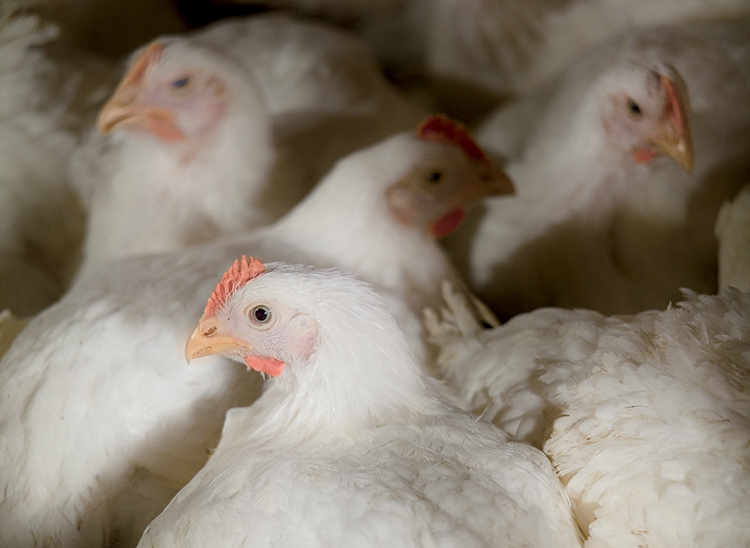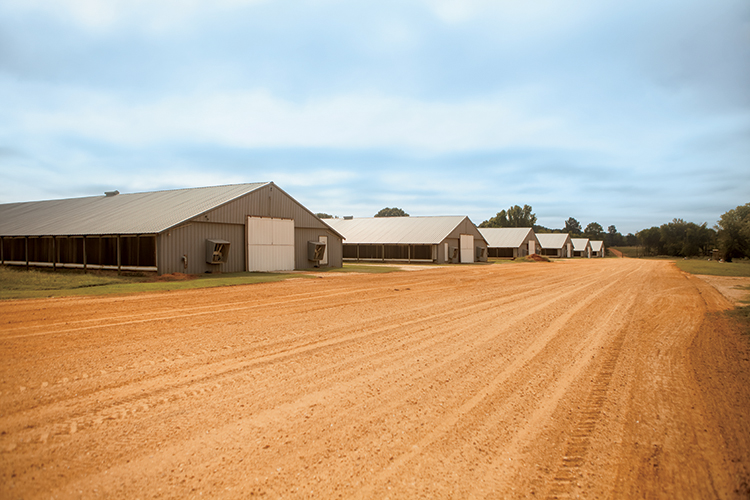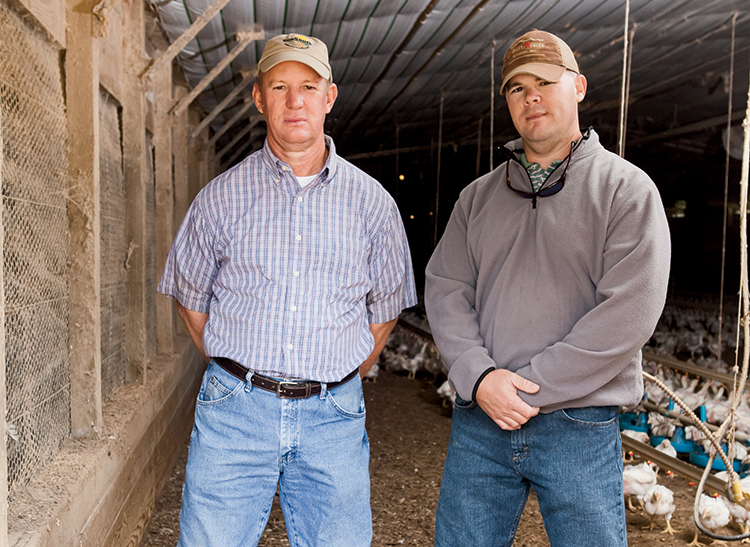Home > Alabama > Alabama Crops & Livestock > Alabama’s Progressive Poultry
Alabama’s Progressive Poultry
Robby Nichols of Letohatchee built his first chicken house in 1999. There weren’t many around him then, but now they seem to be everywhere. Nichols’s farm is no exception to the expansion, having built seven more himself.
“I walked out on a limb when I invested that money in those houses,” Nichols says. “But it’s paid off really nice – it’s put all my kids through college. And I only see the demand for chicken going up from here.” His son, Clay, also raises chickens.
Nichols says since he began raising poultry, technology in the houses has improved drastically.
“People would be surprised how comfortable it is in those houses on a hot summer day,” he says. “It feels like the inside of your house with the air moving in there, and the birds seem to be really comfortable. That part of chicken growing has come a long way.”
Ray Hilburn of the Alabama Poultry and Egg Association says improvements in chicken houses benefit birds and consumers.
“We’ve improved the conditions of the houses so much that the birds aren’t stressed any more,” Hilburn says. “The environment is perfect for them to grow in, and we get better-quality chicken because of that.”
Improvements in technology and husbandry practices are only part of the poultry picture. Major strides have also been made in the birds’ genetics, thanks to Huntsville-based Aviagen Broiler Breeders. Aviagen is one of three primary poultry breeders in the world and supplies day-old grandparent and parent stock chicks to customers in 130 countries worldwide. Aviagen is ranked No. 1 in developing poultry genetics globally and No. 2 in providing poultry stock in the U.S., says Ben Thompson, president of Aviagen North America.
“More than 50 percent of the breeding stock used globally comes from Aviagen genetics,” Thompson says. “About 20 percent of our total production is exported outside of the U.S.”
Hilburn says when consumers buy chicken at the grocery store, the price is almost exactly the same as it was five years ago – that’s because of Aviagen’s work.
“We can grow the bird in a shorter length of time, and we have a much better quality bird,” Hilburn says. “The genetic potential of these birds, along with better technology, has improved the quality and kept the price of chicken down in the grocery store.”
Thompson says because of the improvements in genetics, farmers are raising larger birds without using more resources.
“Better genetics provide for a sustainable agricultural model where we are making an efficient use of grain, ground and water,” Thompson says. “If we do a better job with genetics, all those things are conserved.”
Animal welfare is a top priority at Aviagen and for Alabama poultry farmers.
“The health of the bird comes first,” Thompson says. “If it can’t make it to market weight, it doesn’t do anyone any good. You know you’re doing a good job when the livability of those birds is high, and 95 to 100 percent of birds live until market age.”
Aviagen Group CEO Randall Ennis says the company’s Alabama location is an asset for the company.
“Aviagen is fortunate to be located in a state like Alabama that demonstrates a high degree of support to the poultry industry and the agribusiness industry as a whole,” he says. “This relationship and support is vital to the continued success and growth of agriculture in Alabama.”






